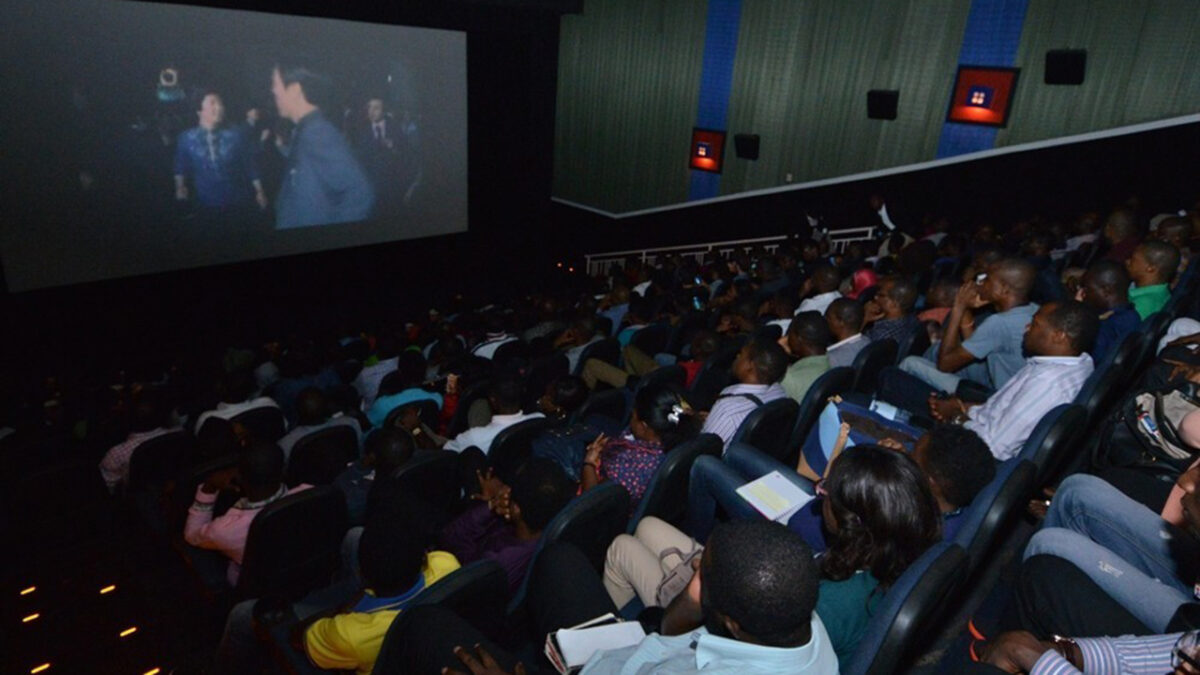BY EMMANUEL CHIDERA AMOKE
From Peepholes to Blockbusters: Tracing the Vibrant History of Nollywood Cinema
For the first time in the late 19th century, peephole viewing of motion picture machines brought the art form of film to Nigeria.
The history of Nigeria cinema, colloquially known as Nollywood, a term used to refer to all films produced in Nigeria started in the late 19th and the 20th century colonial era.
Basically, the history and growth of the Nigerian film industry are typically divided into four eras;
- Colonial Era
- Golden Era
- Video Film Era
- New Nigerian Cinema Era
The first batch of motion pictures were shown in the Glover Memorial Hall in Lagos from August 12 to 22, 1903, and these were quickly replaced with better motion picture presentation systems in the early 20th century.

The first full-length feature film filmed in Nigeria was Geoffrey Barkas’ Palaver (1926), which also marked the debut of Nigerian actors in speaking roles.
The First Feature Film in Nigeria: A Milestone in African Cinema
Ade Ajiboye (Big Abass) produced SOSO MEJI, the first Nigerian Video film, in 1988. It was shown publicly at Tinuade Cinema in Oworonshoki, Lagos
At least 3.5 million people in Nigeria were entertained by mobile cinema vans as of 1954, and the 44 theaters that were open offered free screenings of films made by the Nigerian Film Unit.
Sam Zebba’s “Fincho” (1957), the first Nigerian film to be made in color, was the first movie totally covered by the Nigerian Film Unit’s copyright.
The creation of numerous new movie theaters at that time shows how the 1960 declaration of independence influenced the growth of Nigeria’s film industries.
Due to previous theater professionals like Hubert Ogunde and Moses Olaiya making the switch to the big screen, Nigerian material in theaters expanded in the late 1960s and early 1970s, notably plays from Western Nigeria.
Following several films with average box office returns, “Papa Ajasco” (1984) by Wale Adenuga became the first blockbuster, earning about 61,000 (or roughly 21.552,673 in 2015) in three days. A year later, Moses Olaiya’s Mosebolatan (1985) likewise succeeded, earning 107,000 (about 44,180,499) in five days.
Wale Adenuga later founded the Nigerian family television sitcom “Papa Ajasco and Company” (formerly The “Ajasco Family”) in 1996.

The television programme is a spin-off of a feature film with the same name that Wale Adenuga made in 1984 and was itself based on the comic book “Ikebe Super”.
The “Ajasco family” and their humorous takes on pressing societal concerns are at the center of the narrative. Papa Ajasco, the womanizing patriarch, his patient wife Mama Ajasco, their mischievous son Bobo Ajasco, the neighborhood playboy Boy Alinco, the promiscuous gold-digger Miss Pepeiye, and the uneducated never-do-wells Pa James and Pa Jimoh are the primary characters.
At its height, “Papa Ajasco” was largely regarded as Nigeria’s most popular comedy programme. It was broadcast each week in twelve African nations.
Related posts
Reviews
Follow Our Activities On Facebook
7 hours ago
8 hours ago
9 hours ago
11 hours ago
15 hours ago
SUBSCRIBE
[mc4wp_form id=”2012″]
Top Reads!
#BigBrotherNaija “Level Up” Week 6
Though last Sunday Sunday was meant to be a “no-eviction” day, it came as a shocker when fake housemate, Modella…
Dating in 2022; Situationships Are Not For The Fainthearted
Situationships are defined as that space between a defined relationship and something other than a friendship. It is a romantic…
20 Questions With Dinta Media’s Visual Storyteller, Chimeremogo Nwoke
Dinta Media is not really just a media production brand but we like to see ourselves as a hub for…
How Are Nigeria’s Small Businesses Coping?
The current rising rate of inflation and other burdens against the Nigerian economy speaks to the realities of the times.
Thrifting Is All The Rave Now, Here’s Why
By Amy Adindu The affordable clothing movement has gained global attention and acceptance as we’re all trying to look like…
#BigBrotherNaija “Level Up” Week 2
Week 2 of the highly watched Nigerian TV show kicked off with an early plot twist. On Sunday, Big Brother…
#BlueTunes: Burna Boy, Omah Lay Top Album Picks For July
July was a promising month for music lovers; from Lizzo’s album titled Special and Imagine Dragons’ Mercury, (Acts 1 &…
#BlueTunes Album Picks For June
Gbagada Express – Boj Bolaji Odojukan, popularly known as BOJ, was raised both in England and Nigeria. He shot to…
“A Creative’s Dream” with Jeff Chinonso
On the 26th of June 2022, Jeff Chinonso hosted his first solo art exhibition. The Augmented Reality exhibition themed “A…
Nigerian API-based company Thepeer raises $2.1 million
Tech infrastructure startup Thepeer has raised a $2.1 million seed round according to a report from TechCabal. Thepeer, a Nigerian…
Dika Ofoma, Ugochukwu Onuoha take on grief in Debut Film “The Way Things Happen”
The twenty-minute film focuses on the loss of a loved one, and how grief changes a person.
Nigerian Startups might just be Crippled by a Recently Leaked bill
Over the years there has been talks of amendment on the 2007 Act of the National Information & Technology Agency (NITDA).
Why We Love Kelechi Amadi Obi
The definition of talent is Kelechi Amadi’s iconic story. Imagine a person who studies law in school, gets called to Bar, and leaves it all for something different and unrelated…Painting!

















